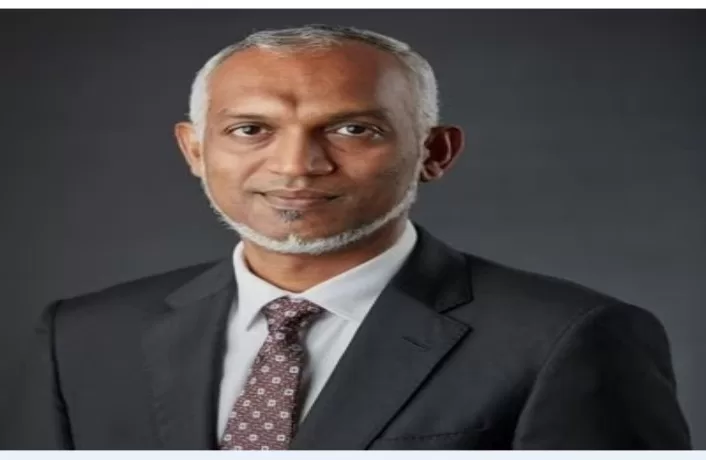Male, Maldives: In a significant electoral outcome, Mohamed Muizzu, a pro-China candidate, has emerged victorious in the Maldives’ presidential election. This result is poised to reconfigure the nation’s diplomatic stance, potentially affecting its longstanding ties with India.
Muizzu, aged 45, leads a party that was previously in power during a period marked by a substantial influx of Chinese loans into the island nation, renowned for its luxury beach resorts and high-profile tourists.
In a runoff election, Muizzu secured 54.06 percent of the vote, prompting the incumbent president, Ibrahim Mohamed Solih, to concede defeat just before midnight.
Taking to X, formerly Twitter, Solih expressed his congratulations to President-elect Muizzu, highlighting the peaceful and democratic process that had unfolded.
Although Muizzu briefly addressed his supporters outside his party’s campaign headquarters, he urged them to withhold celebrations until Sunday morning, when campaign restrictions are officially lifted.
Solih, at the age of 61, will continue as the caretaker president until the presidential inauguration on November 17, when Muizzu will officially assume office.
This electoral outcome poses a challenge to Solih’s efforts over the past five years to realign the Maldives’ diplomatic stance towards New Delhi. The previous government, under Muizzu’s party, played a substantial role in the nation’s development program, which was partially funded by China’s Belt and Road infrastructure initiative.
During a meeting with officials from the Chinese Communist Party last year, Muizzu expressed the intention of strengthening ties between the two countries during his party’s return to power.
Geopolitically, the Maldives holds a strategically critical position in the Indian Ocean, straddling one of the world’s busiest east-west shipping routes.
Muizzu’s political mentor, former President Abdulla Yameen, heavily relied on Chinese loans for various construction projects and adopted a stance that distanced the nation from India. This shift in allegiance towards Beijing had raised concerns in New Delhi and had also drawn the attention of the United States and its allies regarding China’s growing influence in the Indian Ocean.
India’s alignment with the strategic Quad alliance, comprising the United States, Australia, and Japan, underlines the nation’s geopolitical interests.
However, Solih’s efforts to restore the Maldives’ traditional diplomatic posture were met with controversy, as many residents of the archipelago disapproved of India’s significant political and economic influence.
One of Muizzu’s pledges is to secure the release of Yameen, who is currently serving an 11-year sentence for corruption on an island used to detain many of his political opponents during his presidency. During his brief appearance on Saturday, Muizzu appealed to the outgoing president to exercise his executive authority and transfer Yameen to house arrest.
The voter turnout in Saturday’s election stood at 85 percent, slightly higher than during the initial round held earlier this month. Despite some incidents of “electoral violence” reported by the watchdog group Transparency Maldives, the election proceeded relatively smoothly, and the vote count remained uninterrupted. Fourteen individuals were apprehended by the police, primarily for photographing their marked ballot papers and sharing them on social media.
By AFP







